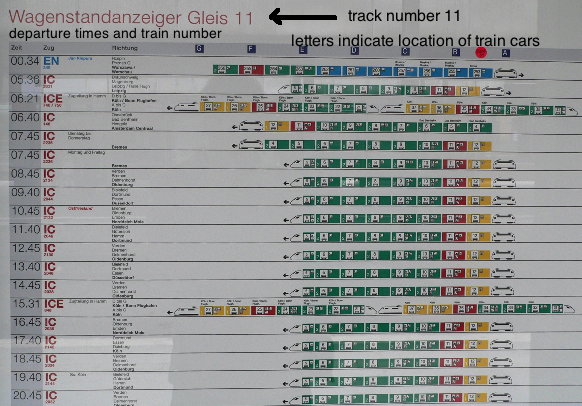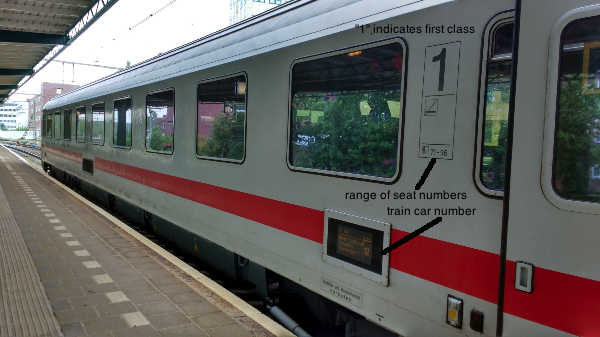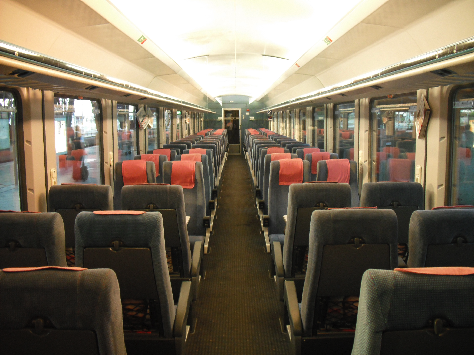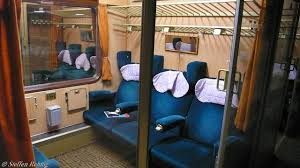| Seite 4 |
Übung 5-4a: Coordinating Conjunctions und, aber, sondern. Quiz im BOLT.
| Name | vom / von der | zum / zur | mit dem / mit der | Zeit |
|---|---|---|---|---|
| Ivan | der Supermarkt | das Wohnheim | das Fahrrad | später |
| Britte | das Kaufhaus | der Zoo | die U-Bahn | jetzt |
| Petra | die Drogerie | der Park | der Bus | morgen |
| Theo und Lisa | die Uni | die Bäckerei | die Straßenbahn | heute abend |
| du | das Wohnheim | das Kaufhaus | das Auto | um elf Uhr |
| Name | vom / von der | zum / zur | mit dem / mit der | Zeit |
|---|---|---|---|---|
| Arno | der Zoo | die Bäckerei | der Bus | jetzt |
| Sara | der Park | der Supermarkt | die Straßenbahn | später |
| Stefanie | die Uni | das Kaufhaus | das Fahrrad | um elf Uhr |
| Karl und Doris | die Drogerie | das Wohnheim | das Auto | morgen |
| ich | der Supermarkt | die Drogerie | die U-Bahn | heute abend |
UND: Similarities. Each sentence below is an example. In the tables above, locate similarities and construct compound sentences connected with the conjunction und.
vom / von der
Petra kommt von der Drogerie und Karl und Doris kommen von der Drogerie.
______________________________________________________________
______________________________________________________________
zum / zur
Ivan fährt zum Wohnheim und Karl und Doris fahren zum Wohnheim.
______________________________________________________________
______________________________________________________________
mit dem / mit der
Theo und Lisa fahren mit der Straßenbahn und Sara fährt mit der Straßenbahn.
______________________________________________________________
______________________________________________________________
Zeit
Petra fährt morgen und Karl und Doris fahren morgen.
______________________________________________________________
______________________________________________________________
ABER: Contrasts. Each sentence below is an example. In the tables above, locate contrasts and construct compound sentences connected with the conjunction aber.
vom / von der
Petra kommt von der Drogerie aber Arno kommt vom Zoo. ______________________________________________________________
______________________________________________________________
zum / zur
Ivan fährt zum Wohnheim aber Arno fährt zur Bäckerei.
______________________________________________________________
______________________________________________________________
mit dem / mit der
Theo und Lisa fahren mit der Straßenbahn aber Arno fährt mit dem Bus.
______________________________________________________________
______________________________________________________________
Zeit
Petra fährt morgen aber Stefanie fährt heute abend.
______________________________________________________________
______________________________________________________________
SONDERN: In every compound sentence with the conjunction sondern, the first statement must be a negation and the second statment the correction. An English equivalent of sondern is "but rather". Each statement is incorrect. Correct the statement based on the examples.
vom / von der
Petra kommt vom Zoo. Petra kommt nicht vom Zoo, sondern von der Drogerie.
Theo und Lisa kommen von der Drogerie: ___________________________________
Du kommst von der Uni. _________________________________________
zum / zur
Ivan fährt zur Bäckerei. Ivan fährt nicht zur Bäckerei, sondern zum Wohnheim.
Sara fährt zum Zoo. ________________________________________
Karl und Doris fahren zum Supermarkt. ____________________________________
mit dem / mit der
Theo und Lisa fahren mit dem Bus. Theo und Lisa fahren nicht mit dem Bus, sondern mit der Straßenbahn.
Arno fährt mit dem Auto. ______________________________________________
Theo und Lisa fahren mit dem Bus. ________________________________________
Zeit
Petra fährt heute abend. Petra fährt nicht heute abend, sondern morgen.
Stefanie fährt jetzt. _____________________________________________________
Ich fahre um elf Uhr. ____________________________________________________
Die Deutsche Bahn (DB)Die Deutsche Bahn (abbreviated "DB") is the German state railway system. Die Deutsche Bahn claims to be the second-largest transport company in the world and the largest railway company in Europe. Train travel in Germany is usually a comfortable, convenient, and enjoyable means of travel. Germany has a dense network of railways with connections to almost every city and town in the country. There are two basic categories of train:

The train car numbers and often the range of seat numbers are shown on the train cars.
On long-distance trains there are two basic kinds of seating, der Großraum (large room) and das Abteil
(compartment). In the Großraum there may also be some seats at a table.
Übung 5-4b: Internet-Aufgabe - Die Deutsche Bahn You are planning a train trip for your German vacation. Website for Die Deutsche Bahn (Englisch) Plan your route for the following popular vacation sites in Germany: You are landing in Frankfurt am Main, so the Hauptbahnhof there is your starting point. You want to start in the North and go from West to East. Then go to the South and travel from East to West. Then end up in Frankfurt am Main at the end. Freudenstadt, Travemünde, Westerland (Sylt), Füssen, Plau am See, Friedrichshafen (Bodensee).
|


